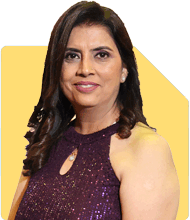My son got 15063 rank in SC category in jee mains 266350 air rank is there any chance to get seat in NIT OR IIIT SIR?
Ans: Kalyan Sir, Here is, How to Predict Your Son's Chances of Admission into NIT or IIIT or GFTI After JEE Main/Advanced Results – A Step-by-Step Guide
Providing precise admission chances for each student can be challenging. Some reputed educational websites offer ‘College Predictor’ tools where you can check possible college options based on your percentile, category, and preferences. However, for a more accurate understanding, here’s a simple yet effective 9-step method using JoSAA’s past-year opening and closing ranks. This approach gives you a fair estimate (though not 100% exact) of your admission chances based on the previous year’s data.
Step-by-Step Guide to Check Your Admission Chances Using JoSAA Data
Step 1: Collect Your Key Details
Before starting, note down the following details:
Your JEE Main percentile
Your category (General-Open, SC, ST, OBC-NCL, EWS, PwD categories)
Preferred institute types (NIT, IIIT, GFTI)
Preferred locations (or if you're open to any location in India)
List of at least 3 preferred academic programs (branches) as backups (instead of relying on just one option)
Step 2: Access JoSAA’s Official Opening & Closing Ranks
Go to Google and type: JoSAA Opening & Closing Ranks 2024
Click on the first search result (official JoSAA website).
You will land directly on JoSAA’s portal, where you can enter your details to check past-year cutoffs.
Step 3: Select the Round Number
JoSAA conducts five rounds of counseling.
For a safer estimate, choose Round 4, as most admissions are settled by this round.
Step 4: Choose the Institute Type
Select NIT, IIIT, or GFTI, depending on your preference.
If you are open to all types of institutes, check them one by one instead of selecting all at once.
Step 5: Select the Institute Name (Based on Location)
It is recommended to check institutes one by one, based on your preferred locations.
Avoid selecting ‘ALL’ at once, as it may create confusion.
Step 6: Select Your Preferred Academic Program (Branch)
Enter the branches you are interested in, one at a time, in your preferred order.
Step 7: Submit and Analyze Results
After selecting the relevant details, click the ‘SUBMIT’ button.
The system will display Opening & Closing Ranks of the selected institute and branch for different categories.
Step 8: Note Down the Opening & Closing Ranks
Maintain a notebook or diary to record the Opening & Closing Ranks for each institute and branch you are interested in.
This will serve as a quick reference during JoSAA counseling.
Step 9: Adjust Your Expectations on a Safer Side
Since Opening & Closing Ranks fluctuate slightly each year, always adjust the numbers for safety.
Example Calculation:
If the Opening & Closing Ranks for NIT Delhi | Mechanical Engineering | OPEN Category show 8622 & 26186 (for Home State), consider adjusting them to 8300 & 23000 (on a safer side).
If the Female Category rank is 34334 & 36212, adjust it to 31000 & 33000.
Follow this approach for Other State candidates and different categories.
Pro Tip: Adjust your expected rank slightly lower than the previous year's cutoffs for realistic expectations during JoSAA counseling.
Can This Method Be Used for JEE April & JEE Advanced?
Yes! You can repeat the same steps after your April JEE Main results to refine your admission possibilities.
You can also follow a similar process for JEE Advanced cutoffs when applying for IITs.
Want to Learn More About JoSAA Counseling?
If you want detailed insights on JoSAA counseling, engineering entrance exams, preparation strategies, and engineering career options, check out EduJob360’s 180+ YouTube videos on this topic!
Hope this guide helps! All the best for your Son's admissions & for his bright future!
Follow RediffGURUS to Know more on 'Careers | Health | Money | Relationships'.























